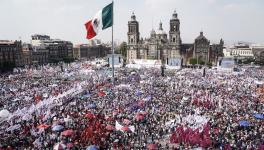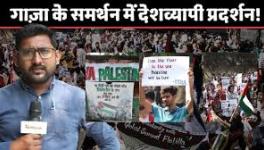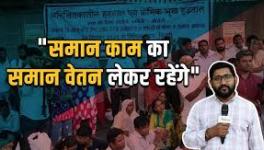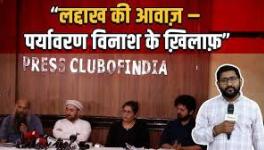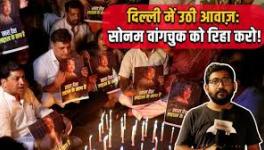One Nation, One Election: Last Gasp of a Neo-Fascist Dispensation
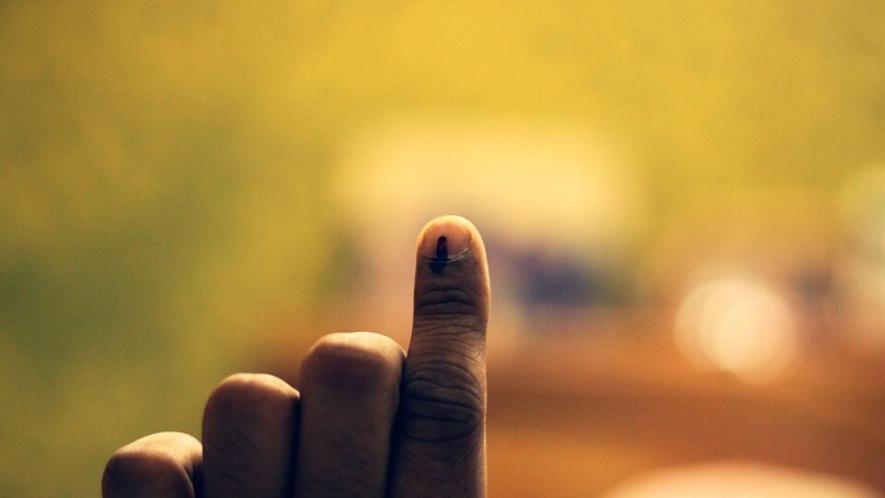
Representational Image. Image Courtesy: Wikimedia Commons
The push by the ruling neo-fascist dispensation for One Nation, One Election (ONOE) is being dressed up as an exercise in “efficiency.” We are told it will cut costs, stop the endless “election circus,” and even add 1.5% to GDP. But behind these questionable numbers and technocratic arguments by the denizens of the neo-liberal project lie deeper concerns.
ONOE is part of a larger package, including election fraud and political re-engineering, that serves the purposes of a regime in crisis, inter alia advancing the larger goals of the neo-liberal project: the centralisation of political power, the ongoing weakening of federalism, and the further privileging of the corporate–financial oligarchy and its crony segments.
The Election Commission of India’s administrative expenditure on elections has historically been minuscule in fiscal terms. It rose from just ₹10.5 crore in 1952 to ₹3,870.3 crore in 2014, according to official figures, and earlier reports noted that the outlay in 2009 was around ₹846 crore. Even allowing for subsequent increases, this remains a negligible fraction of the Union Budget. By any fiscal standard, synchronising elections cannot generate meaningful savings at such levels of expenditure.
However, once one includes the spending of political parties, candidates, and campaigns, the scale of election-related flows becomes far larger. Independent researchers (notably CMS) estimate that in 2019 total poll expenditure was about ₹60,000 crore (front-end + campaign), and for 2024 the figure may touch ₹1.35 lakh crore (more than double the 2019 amount).
Crucially, in a system where elections are staggered over years, these large injections of public and private spending act as a counter-cyclical stabiliser of aggregate demand. Condensing them into a single synchronised cycle may not improve efficiency; in a structurally demand-constrained economy it risks depressing demand, output, and employment during non-election years.
Advocates of ONOE nonetheless argue that election spending should be redirected to more “productive” purposes, or that cuts in such outlays would automatically trigger equivalent private expenditure. Both claims rest on the false presumption that the Indian economy is supply constrained. Even if it were, the savings from such a small share of public expenditure would remain insignificant. In reality, elections crowd in private expenditure and generate multiplier effects that few other forms of public spending can match. To dismantle staggered elections in the name of efficiency is, therefore, not an economic necessity but a political project aimed at consolidating power.
What if the reduction in public revenue expenditure is fully redirected toward higher public capital expenditure due to synchronisation of elections under ONOE? This full redirection would not change the magnitude of aggregate expenditure but might crowd in those types of private investment which are constrained by inadequate public infrastructure. But at the same time, the reduction in public revenue expenditure would reduce capacity utilisation in those sectors where the subsequent multiplier effects of the aforementioned crowding in are less significant.
Two factors are likely to make this redirection have adverse consequences on aggregate demand and output. One, the time lag between public investment starts and completion, especially since the neo-liberal project became hegemonic, may be such that the negative revenue expenditure compression effects will precede the crowding effects. The longer this time lag, the more likely that private investment will not respond positively to the aforementioned redirection.
Let it be assumed that the total public and private expenditure on elections is the same under both ONOE and staggered elections. In fact, it is quite likely that the total public and private expenditure on staggered elections will be higher, but let this be ignored for the sake of argument. This given magnitude of total public and private expenditure on elections, when staggered over five years, is likely to stabilise aggregate demand to a greater extent than a one-shot increase in total public and private expenditure on elections, with attendant positive consequences on private investment and therefore technical change.
The true effect of ONOE is political. Staggered elections currently force governments to keep occasionally returning to the people, partially responding to grievances and offering a modicum of redistributive measures (that have declined especially since 2014, though policy relabelling seeks to mask this decline). ONOE seeks to take that away. Instead of multiple temporal reinforcements of limited accountability, there will be under ONOE a single five-yearly moment when the government is compelled to demonstrate a modicum of accountability to the working people, while the remainder of the five years can be deployed to entrench the heterogeneous dimensions of the neo-liberal project, which is largely hegemonised by the neo-fascist dispensation.
The extra quantum of resources that governments transfer to the working people due to elections being staggered, in the form of subsidies, loan waivers, wage hikes etc., are quite limited when compared with government transfers to the corporate financial oligarchy in the form of tax cuts, below-cost asset transfers, surplus-augmenting public expenditure etc. It is also an elementary inference from macroeconomics that every unit of income transferred to the working people stimulates aggregate demand more when compared with a unit of income transferred to surplus, especially of the corporate financial oligarchy.
In terms of political economy, a shift to ONOE will firstly mean that redistribution shrinks; revenue expenditure on food, wages, and welfare will decline. Next, policy horizons lengthen for capital as neo-liberal governments will have a free run to further corporate tax breaks, privatisation, corporate land grabs, labour "reforms" to further undermine the bargaining power of the working people, corporate encroachment into peasant agriculture etc.
ONOE also fundamentally weakens the federal structure. India's democracy has thrived to the extent that it has due to its unity in diversity. Staggered elections allow states some leeway to try and assert themselves, to get the union government to negotiate, to make some space for regional voices and concerns etc. ONOE will destroy this federal impulse.
ONOE will homogenise every election, reducing state-level issues to footnotes in a presidential-style contest which is likely to play to the strengths of the neo-fascist ruling dispensation. It will end up institutionalising the anti-constitutional "double engine ki sarkar" narrative, where the neo-fascist ruling dispensation tells voters that it is optimal for governance (but for whom?) if the same party exercises power in both the union and state governments.
If state-level concerns become secondary, it will accelerate political re-engineering by the neo-fascist ruling dispensation, resulting in many other political parties becoming servile appendages or undergoing political-organisational disarray or both. Moreover, under ONOE the already attenuated status of local bodies and their electoral processes will become further marginalised.
ONOE will be a means to refurbish neo-fascist hegemony over the neo-liberal project in India, resulting in the further strengthening of the corporate financial oligarchy, accelerating the undermining of federalism and unleashing a hitherto unprecedented wave of primitive accumulation of capital. Working people, under ONOE, will lose the ability to use staggered elections as tools of achieving even a modicum of accountability.
ONOE is the final step in the counter-revolution against the limited democratic gains that were achieved due to the anti-colonial liberal struggle that began with the proliferation of India's neo-liberal project. It will institutionalise neo-fascism in India, amounting to a thoroughly undemocratic way to deal with the ongoing crisis of neo-fascism due to the diminishing returns from differentially squeezing the oppressed segments of the working people while also squeezing the working people as a whole.
India's democratic movement needs to comprehensively unite and resist ONOE and ensure that it is not allowed to become law. Such a resistance can be a harbinger of a wider struggle against the whole gamut of the ruling neo-fascist dispensation.
Shirin Akhter is Associate Professor at Zakir Husain Delhi College, University of Delhi. C Saratchand is Professor, Department of Economics, Satyawati College, University of Delhi. The views are personal.
Get the latest reports & analysis with people's perspective on Protests, movements & deep analytical videos, discussions of the current affairs in your Telegram app. Subscribe to NewsClick's Telegram channel & get Real-Time updates on stories, as they get published on our website.


















